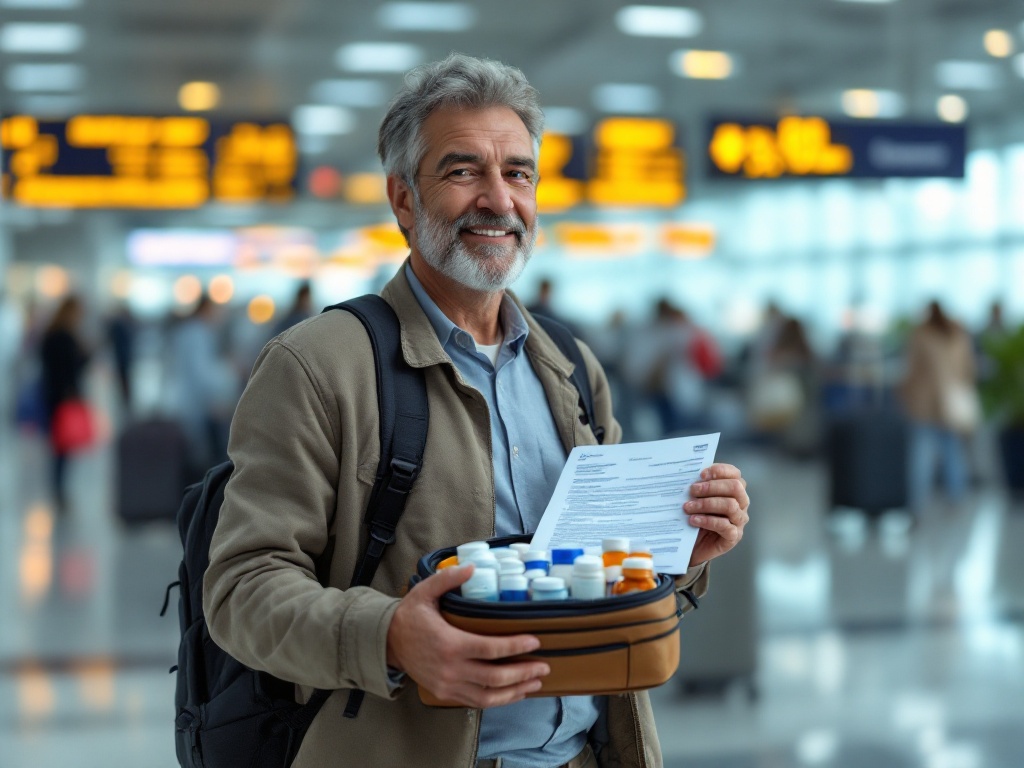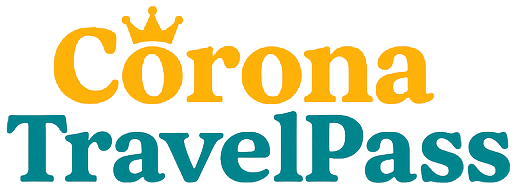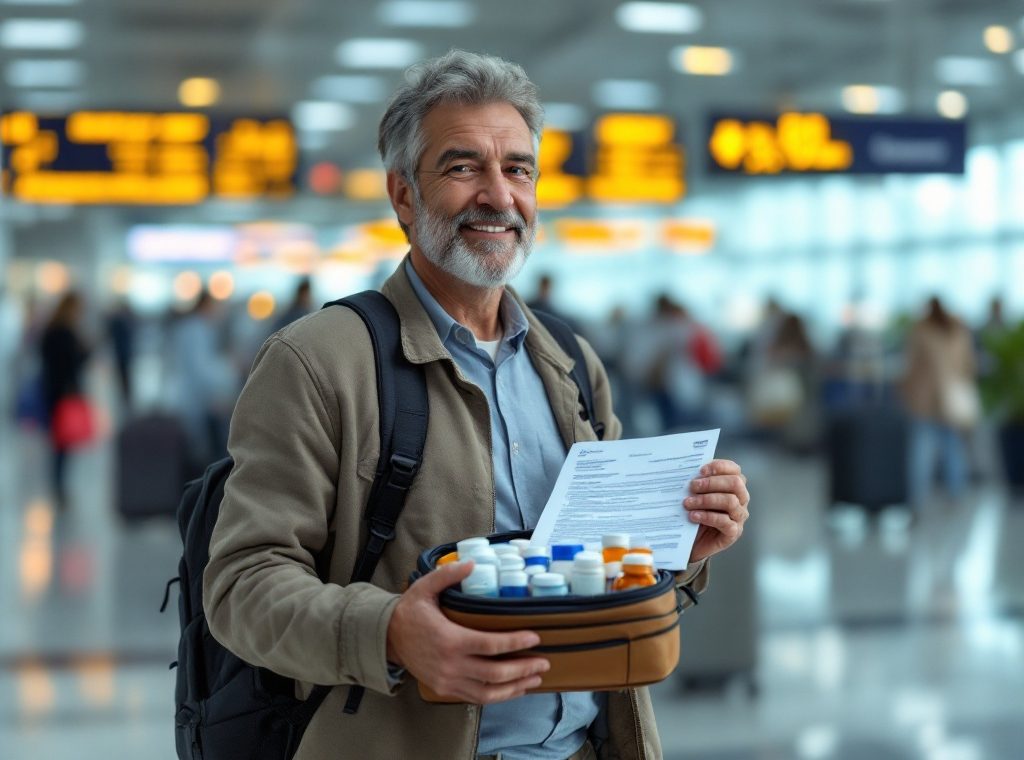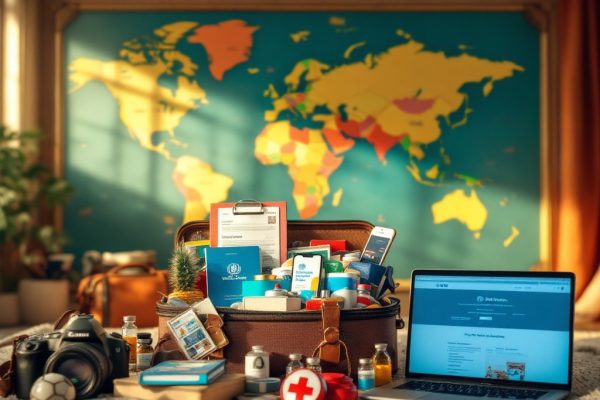Traveling Internationally with Prescription Drugs
Traveling internationally with prescription medications? Avoid potential legal pitfalls and ensure a smooth trip by understanding the regulations. This guide provides essential information on carrying prescriptions abroad, from required documentation like doctor’s letters and prescriptions to navigating customs checks and managing controlled substances. Learn how to prepare your medications, understand carry-on restrictions, and create a backup plan for emergencies. Discover key steps to ensure a healthy and hassle-free international journey.
Important information

- Research your destination’s laws on prescription drugs. Some medications may be illegal even if allowed in your home country.
- Carry a copy of your prescription and a doctor’s letter stating your medical need for the medication.
- Keep your medications in their original, labeled containers.
- Check your destination’s rules on medication quantities, as limits often exist. Contact the embassy or consulate for specifics.
- Pack medications in your carry-on bag to prevent loss or damage. Declare liquid medications exceeding 3.4 ounces to security.
Understanding International Travel with Prescription Drugs
Traveling internationally with prescription medications requires careful planning. Before your trip, research your destination’s laws regarding medications, as some may be prohibited even if legal in your home country. Carry a copy of your prescription and a doctor’s letter explaining your medical need for the medication. Always store your medications in their original, labeled containers. Check your destination’s regulations on medication quantities, as limits often apply. Be prepared for customs checks and note that while a 90-day supply for personal use is common, it’s not universal. Exceeding allowed limits can have legal consequences.
Research destination’s laws. Familiarize yourself with the specific regulations of your destination country regarding prescription medications.
Carry necessary documentation. Bring a copy of your prescription and a doctor’s letter outlining your medical condition and why the medication is required.
Use original containers. Always keep your medications in their original, clearly labeled packaging.
Check quantity regulations. Research your destination’s specific rules regarding medication quantities, as restrictions may apply.
Be prepared for customs. Anticipate customs checks and be aware of potential variations in allowed medication quantities.
Legal Requirements for Traveling with Prescription Drugs
Traveling with medications requires careful planning. Pack your prescriptions in their original, clearly labeled containers with your name and dosage information. Carry a copy of your prescription and a letter from your physician explaining your medical needs. This is especially important if your medication requires refrigeration or syringes. For international trips, research the specific medication regulations of your destination country, as these can vary significantly. Consider packing your medications in your carry-on bag to prevent loss or damage in case of checked baggage delays.
Use original containers. Pack your medications in their original, clearly labeled containers.
Label clearly. Ensure your name and dosage information are clearly visible on the containers.
Carry documentation. Bring a copy of your prescription and a doctor’s letter explaining your medical needs.
Research international regulations. If traveling internationally, research your destination country’s specific medication rules.
Use carry-on luggage. Pack medications in your carry-on bag to avoid loss or damage.
Common Legal Considerations for Medicines Abroad
Traveling with medication requires careful planning. Before your trip, research the laws of your destination country, as legal medications in one place may be prohibited in another. This can cause serious problems upon arrival. To avoid any issues, follow these steps:
Carry a copy of your prescription. It’s also recommended to have a letter from your doctor explaining your medical condition and listing all your medications.
Keep your medication in its original, clearly labeled container. This helps prevent confusion with other medications and ensures safe travels.
Contact the embassy or consulate of your destination country for specific guidance on medication regulations. This provides extra peace of mind for your trip.
Country-Specific Laws and Regulations
Traveling with prescription medications? A 30-day supply is generally allowed with a valid prescription, but regulations differ between countries. Always check your destination’s specific rules before you travel.
Prescription Requirements and Documentation
Traveling abroad with medication? Be sure to check the regulations at your destination. Many countries require a prescription or a doctor’s note for certain medications. Carry a copy of your prescription, including the generic drug names. Some countries may have additional requirements, such as a letter from your physician explaining your medical condition and why you need the medication. For specific details, contact the embassy or consulate of your destination country. Advance planning will ensure a smooth and hassle-free trip.
Check the medication regulations at your destination. Many countries require a prescription or a doctor’s note for certain medications.
Carry a copy of each prescription, including the generic drug names.
Some countries may have additional requirements, such as a letter from your physician explaining your medical condition and why you need the medication.
Contact the embassy or consulate of your destination country for specific details.
Preparing for Travel: Medication Management
Consult your doctor or a travel health specialist four to six weeks before your trip to discuss your medications and any potential health concerns. This proactive step helps prevent issues related to your medications during travel.
Pack your medications in their original, clearly labeled containers. This practice ensures proper identification and avoids any confusion with other substances.
Consider using a travel wallet to organize your prescriptions, medical documents, and other important papers. This keeps them readily accessible and protected throughout your journey.
Pack extra medication to account for potential travel delays or unforeseen circumstances. Having a buffer supply prevents interruptions in your medication schedule.
Think about how different climates might affect your medication and plan accordingly to maintain its effectiveness. Extreme temperatures or humidity can alter the stability of certain medications.
Research your destination’s regulations regarding medications. Ensure your medications are legal in the country you’re visiting and understand any required documentation.
Carry a copy of your prescription and a doctor’s letter explaining your medical condition and the need for your medication. These documents can facilitate smooth passage through customs and avoid potential complications.
Consulting Healthcare Providers for Travel Safety
Traveling to a destination with restrictions on your regular medication? Consult your doctor about alternatives to ensure continued access during your trip. Some medications may require pre-approval or special documentation. With proper planning, you can maintain your treatment plan, and your doctor can guide you through potential challenges. This ensures a healthy and enjoyable travel experience.
Considerations for Chronic Conditions and Medication Schedule
When traveling abroad, pack sufficient medication for the duration of your trip, as obtaining refills in a foreign country can be challenging. This is especially important for those with chronic illnesses. Ensure your medication schedule aligns with your itinerary, accounting for time zone changes that could disrupt your routine and lead to missed doses. Carrying a copy of your prescription is also recommended.
Navigating Customs Regulations and Screening
Before your trip, take some time to understand customs regulations, especially those concerning carry-on luggage. For example, liquid medications often have specific restrictions. Ignoring these rules could lead to confiscation of items or legal consequences. To prevent these issues, contact the embassy or consulate of your destination country. They can confirm the acceptability of your medication and advise you on local customs procedures. This preparation will ensure a smooth and worry-free journey.
Understanding Carry-on Bags and Liquid Medication Policies
You can bring essential liquid medications exceeding 3.4 ounces in your carry-on bag. Just declare them to security at the checkpoint. Showing your medications, along with a doctor’s note or prescription (while not mandatory, it’s recommended), can expedite the screening process.
Managing Potential Confiscation and Legal Issues
Pack essential medications in your carry-on to avoid potential problems.
If your medication is confiscated, your embassy or consulate can provide immediate assistance.
It’s best to avoid purchasing medications abroad due to the risk of counterfeit drugs.
Familiarize yourself with local regulations, as some medications may be prohibited.
Carrying prohibited medications could have legal ramifications.
Special Considerations for Controlled Substances
Traveling with medication requires careful planning, especially concerning international regulations. Some countries prohibit or restrict certain drugs, so research your destination’s specific laws. Contacting the embassy or consulate of the country you’re visiting can provide clarification. Penalties for violating these regulations can be severe.If you are carrying psychotropic or narcotic medications, extra precautions are essential. Always carry a copy of your prescription, ensuring it clearly displays your name and the correct dosage. A doctor’s letter outlining your medical need for these medications is also highly recommended. Confirm the import regulations with the embassy or consulate of your destination country. Finally, keep your medications in their original packaging throughout your travels.
Dealing with Banned and Restricted Medications
Traveling abroad requires careful consideration of medication regulations. Contact the embassy or consulate of your destination country to confirm their rules, especially for narcotics and controlled substances. Drug laws vary significantly, and a legal medication at home could be illegal elsewhere. For instance, certain pain relievers, sedatives, and stimulants may be restricted. Always carry your prescriptions and verify the status of even over-the-counter medications. Some common drugs might be unexpectedly controlled in other countries. Keep your medications clearly labeled. Here’s a step-by-step guide:
Research destination country regulations. Contact the embassy or consulate of the country you’re visiting to learn about their specific medication policies.
Confirm the legality of your medications. Double-check that all your medications, including over-the-counter drugs, are permitted in your destination country. Pay close attention to narcotics, controlled substances, pain relievers, sedatives, and stimulants, as these are often subject to stricter regulations.
Carry your prescriptions. Always travel with the original prescriptions for all your medications. This documentation can help avoid confusion and demonstrate the legitimate medical need for your medications.
Label medications clearly. Ensure all your medications are in their original containers with clear labels. This helps customs officials and healthcare professionals quickly identify the contents and verify their legality.
Traveling with Psychotropic and Narcotic Drugs
Traveling with psychotropic or narcotic medications requires proper documentation. Always carry a valid prescription from your physician. Be prepared to present it to authorities upon request. This will help ensure a smooth and trouble-free journey.
Ensuring Medication Safety and Compliance
Traveling with medication requires some preparation. Follow these steps to ensure a smooth trip:
Check the regulations. Contact your destination’s embassy or consulate to confirm your medication’s legality. Research specific rules on government health and travel websites.
Carry documentation. Bring a copy of your prescription and a doctor’s note for your medication.
Use original containers. Keep your medications in their original, labeled packaging.
Pack enough medication. Ensure an adequate supply, considering potential travel delays.
Adjust for time zones. Modify your medication schedule according to time zone changes, but maintain a consistent dosage.
Maintaining Dosage and Treatment Plans Across Time Zones
When traveling across time zones, adjust your medication schedule accordingly. Consult your doctor or pharmacist to determine the best way to adapt your medication times. This ensures consistent therapeutic levels and treatment efficacy, while also minimizing potential side effects. Remember to account for the time difference between your departure and arrival locations. For example, if you are taking medication every 8 hours and travel eastward across several time zones, you may need to take your medication more frequently to maintain consistent blood levels. Conversely, if you travel westward, you may need to reduce the frequency. Always have enough medication to cover any unexpected travel delays. Store your medication in its original packaging and keep it with you in your carry-on luggage to avoid any potential issues with checked baggage. Additionally, carry a copy of your prescription and a letter from your doctor explaining your medical condition and medication regimen, especially if your medication requires refrigeration or special handling.
Emergency Preparedness and Backup Plans
Pack essential medications in your carry-on to avoid disruptions if your checked luggage is lost or delayed.
Include basic first-aid supplies such as bandages, antiseptic wipes, and pain relievers.
Consult your doctor about additional supplies or precautions if you have specific medical conditions.
Research local emergency numbers and consider travel insurance with comprehensive medical coverage.
Locate nearby hospitals and clinics at your destination.
Carry copies of your prescriptions, medical history, allergies, and a summary of current medical conditions.
Creating a Backup Supply and Emergency Medical Supplies
Accessing Emergency Medical Advice and Assistance
In a medical emergency abroad, immediately contact local emergency services (often “112,” but research your destination’s specific number beforehand). Your embassy or consulate can assist you in finding medical care and contacting family. Crucially, secure travel insurance that covers medical emergencies and evacuations. Also, carry a list of emergency contacts, including local numbers, your personal physician, and family members.

















